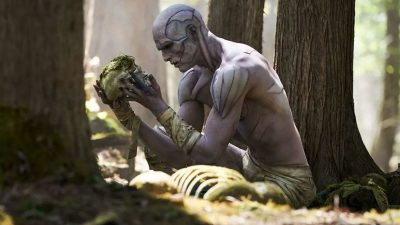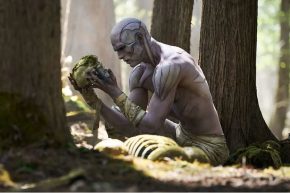Venice evokes images of indulgent feasts, thrilling excitement, and luminous light, particularly for those who have experienced the fragrance of the lagoons at dusk amidst the setting sun. Similarly, the trumpet’s resounding call conjures up feelings of celebration, excitement, and illumination for many.
Amongst the few who have mastered this simple yet exceedingly difficult instrument is the esteemed Gábor Boldoczki, who holds the distinction of being the world’s first trumpeter to perform solo at the Salzburg Festival in 2004. Boldoczki has graced prestigious venues such as Vienna’s Musikverein, Berlin’s Philharmonie, Paris’s Salle Gaveau, and Théatre des Champs-Elysées as a guest trumpeter, collaborating with notable artists such as Gidon Kremer’s Kremerata baltica and the Gulbenkian Orchestra led by Lawrence Foster. He has also been awarded numerous esteemed national and international honors. The Tromba Veneziana concert program, named after Boldoczki’s album of the same name, is set to be performed by the Wroclaw Baroque Orchestra, an outstanding Polish historical ensemble founded by Andrzej Kosendiak, which has impressed audiences worldwide with its collaborations with renowned conductors including Philippe Herreweghe, Giovanni Antoni, Jaap ter Linden, and Paul McCreesh.
The Müpa has selected the perfect time to present the Tromba Veneziana concert, coinciding with Venice’s revival of its Carnival tradition after a prolonged hiatus due to the epidemic. The city’s eighteen-day celebration, dating back to the 14th century, promises an array of colorful masquerades and costumes, which will be accompanied by a special musical composition by Vivaldi and his contemporaries played on the trumpet, a relatively uncommon instrument in this genre. Gábor Boldoczki’s performance with the Wroclaw Baroque Orchestra is expected to be a musical experience of unparalleled magic and beauty. While Shaw’s writings on music and wind instruments may come to mind, it is undoubtedly clear that this unique combination of works by 17th-century composers
played on the trumpet is a rare and exceptional treat for aficionados of early music. Vivaldi, a native of Venice, is the centerpiece of the concert’s repertoire, providing an apt choice that captures the city’s vibrant soul.
For those who seek to indulge in the splendor of Venice’s glorious past, this concert offers a chance to transport themselves to a time of opulent palaces, magnificently adorned ships, and the world’s first Venetian casino. While donning a tricorn hat may only be compulsory in one’s imagination, the concert promises a glimpse into the city’s opera capital heyday, inviting the audience to immerse themselves in an imaginary theater set. The Wroclaw Baroque Orchestra’s musical repertoire is played on historical instruments, offering a rare opportunity to hear music from that era. The ensemble, comprising twenty-one accomplished musicians, is led by Jaroslav Thiel, who has been at the helm since its inception in 2006. The ensemble has enthralled audiences worldwide with their splendid performances, and their collaboration with renowned conductors has only added to their success.
The concert is part of the MÜPA Early Music Festival, and as a prelude, music historian Gergely Fazekas will deliver a presentation titled Prelude, which is open to all ticket holders. Those who arrive at 6 pm can bask in the knowledge and insights shared by Fazekas, adding another layer of depth and richness to their concert experience.
Article: Anna Rácz
Translation: Nóra Fehér

























Comments